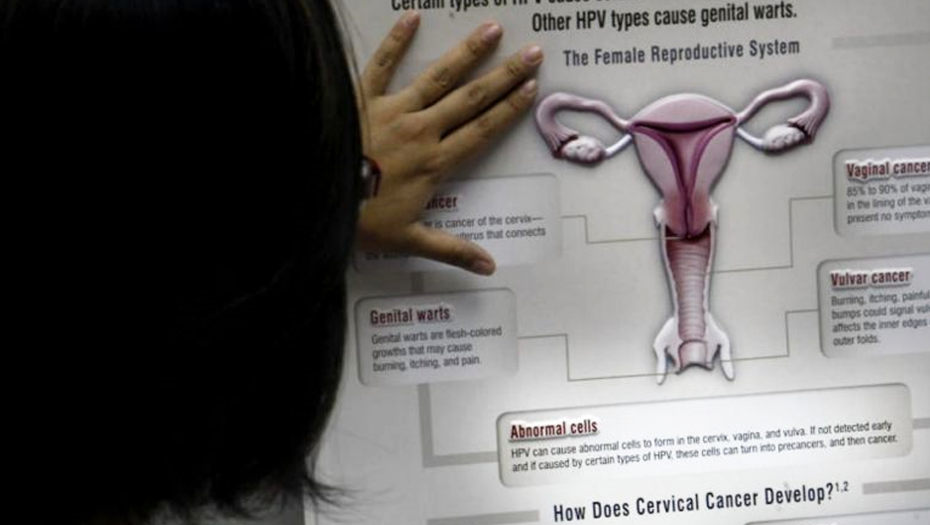
To screen the helpers, the programme uses a test for high-risk strains of human papillomavirus, which causes cervical cancer.PHOTO: ST FILE
Rei Kurohi, The Straits Times
Foreign domestic workers between the ages of 30 and 65 can get free cervical cancer screenings at two hospitals here, under an initiative by the Society for Colposcopy and Cervical Pathology of Singapore (SCCPS).
The two hospitals offering the screenings under a pilot programme are the National University Cancer Institute, Singapore (NCIS) located in the National University Hospital (NUH) and KK Women's and Children's Hospital (KKH).
To screen the helpers, the programme uses a test for high-risk strains of human papillomavirus (HPV), which causes cervical cancer.
The test has been adopted in countries like Australia and the Netherlands.
On Wednesday, the Ministry of Health (MOH) announced that the test will also be adopted and subsidised here, as it is more accurate than the currently recommended Pap smear test. It also announced that from next month, Secondary 1 girls will be able to opt in for free HPV vaccinations in schools to prevent cervical cancer.
The free test for helpers, meanwhile, is being initiated under the Helping Our Helpers programme, which is a partnership between the SCCPS, the Humanitarian Organisation for Migration Economics (Home), pharmaceutical company Roche Diagnostics, and the two hospitals offering the screenings.
SCCPS president, Dr Joseph Ng, who is also a senior consultant at the gynaecologic oncology division at NCIS, said that since the programme was piloted in September last year among a small group of employers and their helpers, about 100 helpers have been screened.
The pilot programme will continue until 200 helpers have been screened, but plans are underway for a second phase. More details will be announced closer to the middle of this year, Dr Ng said.
He added that the new HPV test usually costs $99 at NUH for Singaporeans and permanent residents. For non-residents, including helpers, it costs $135.
Although a Pap smear test is cheaper at $58.85 ($76 for non-residents), it needs to be done at least once every three years, while the HPV test needs to be done only every five years.
Dr Ng said that while it is encouraging that the Government is stepping up efforts for cervical cancer detection and prevention for Singaporeans, helpers are currently underserved, as such screenings are not part of the medical tests that they are required to undergo when they apply to work here.
The examination to determine if a helper is fit to work here covers tuberculosis, human immunodeficiency virus (HIV), syphilis and malaria.
As a result, Dr Ng said he "very frequently" sees helpers with advanced cervical cancer, which needs to be treated with a combination of radiation therapy and chemotherapy.
"That's a death sentence for them, because cervical cancer treatment in Singapore costs between $30,000 and $40,000," said Dr Ng.
On Thursday, the AFP reported that a 38-year-old Filipina domestic worker in Hong Kong was fired by her employer after she was diagnosed with cervical cancer in January.
According to the Ministry of Manpower website, employers here are required to buy medical insurance for their helpers with a minimum annual coverage of $15,000 for inpatient care and day surgery.
Dr Ng said: "Since 2002, in the whole time I've been practising here, I think I've only come across one employer who paid for their helper to get cervical cancer treatment in Singapore. Most just send them home to die."
Although it is free under the programme, convincing employers to bring their helpers for screening remains a challenge, he said.
"Many employers don't see the need for it. One concern that they often have is the cost of follow-up tests and procedures should their helpers test positive for HPV."
HPV infections also often show no symptoms until cervical cancer develops. This can take 10 to 15 years.
When detected early, pre-cancerous cells can be removed with a simple procedure in a doctor's office and costs less than $1,000, he said.
A spokesman for the programme said: "Cervical cancer is almost entirely preventable with early detection and treatment. It is the 10th most common cancer affecting women in Singapore, but the second in countries such as Philippines, India, Indonesia and Myanmar.
"Considering this risk, Helping Our Helpers aims to lower the incidence of cervical cancer by offering HPV testing to women who may otherwise not have access."
Information about the pilot programme can be found online at www.sccps.org/hoh.
SOURCE: THE STRAITS TIMES SINGAPORE PRESS HOLDINGS LIMITED. REPRODUCED WITH PERMISSION.
Contributed by














 Get it on Google Play
Get it on Google Play